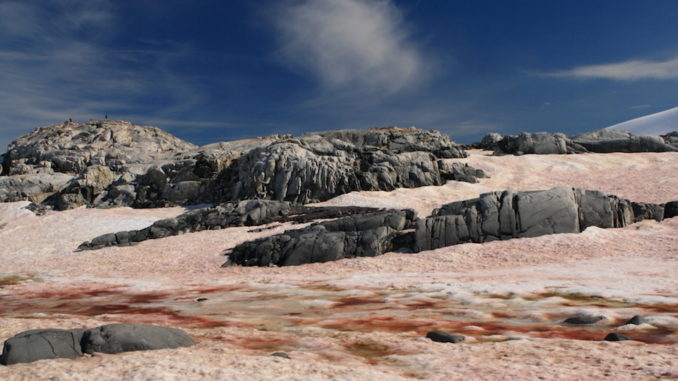
‘Watermelon’ or red snow has puzzled mountain climbers, explorers, and naturalists for thousands of years. Observed globally in alpine and polar regions during the summer, it is caused by blooms of microscopic algae and their associated microbiome, including fungi, bacteria and viruses. While white snow reflects solar radiation, red snow absorbs up to 20% more energy from the sun, which accelerates snowmelt and increases global heat retention.
Red snow is common in BC’s mountains and contributes to the rate of snow melt, thereby directly affecting BC watersheds where high elevation snow packs produce the flow of water into salmon streams and drinking water reservoirs. While we know that red snow accelerates warming and melting, we lack critical knowledge about the distribution, seasonal progression, and biology of snow algae microbiomes.
Genome BC is funding research in to the microbiome of the algae that causes red snow to provide a better understanding of how this microbiome persists in this harsh environment, and its effect on the larger ecosystem. A team led by Simon Fraser University’s Lynne Quarmby will seek to identify which microbial species are present, why species occur in different locations at different times, and how these species interact. In addition, this project will establish a BC Snow Algae Culture Collection and a biobank of field samples to support future research.
This work, funded in the fourth round of Genome BC’s Sector Innovation Program (SIP) will be foundational for future assessment of climate change impacts in our alpine regions and it will inform water management practices in the changing climate. Other projects, all focused around different microbiomes, include:
- Relationship between external and internal microbiomes in normal and compromised airways
Christopher Carlsten, Janice Leung – University of British Columbia - Genomics of viruses and microbial symbionts of spotted wing Drosophila
Steve Perlman, Paul Abram – University of Victoria and Agriculture & Agri-Food Canada - Modeling the influence of virus-microbiome relationships in Type 1 Diabetes
Lisa Osborne, Sean Crowe – University of British Columbia - Subsurface microbiome responses to fugitive natural gas
Roger Beckie, Sean Crowe – University of British Columbia
“We now know that microbiomes are key parts of our bodies and all living organisms around us,”
said Dr. Catalina Lopez-Correa, Chief Scientific Officer and Vice President, Sectors, at Genome BC.
“Our investment in these SIP projects will help us better understand the significant role that the microbiome plays in larger ecosystems.”
